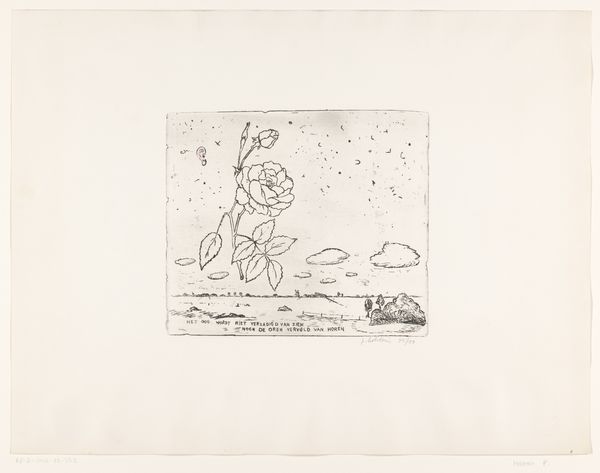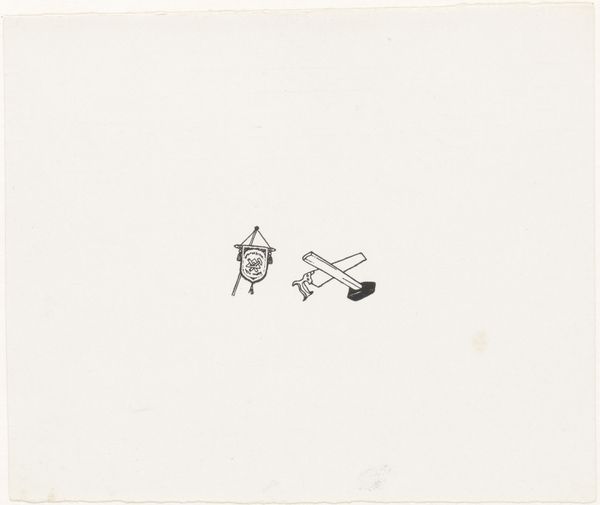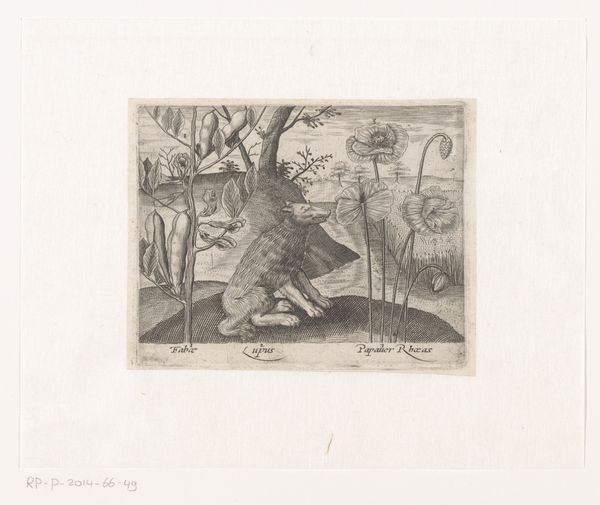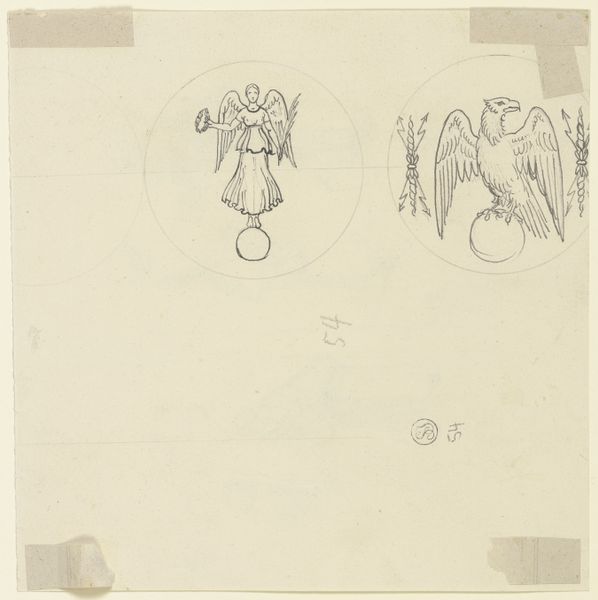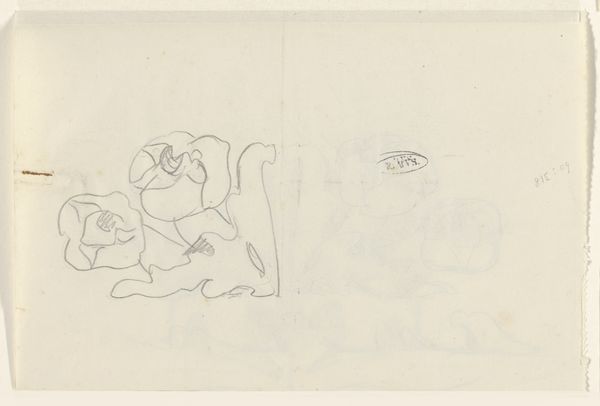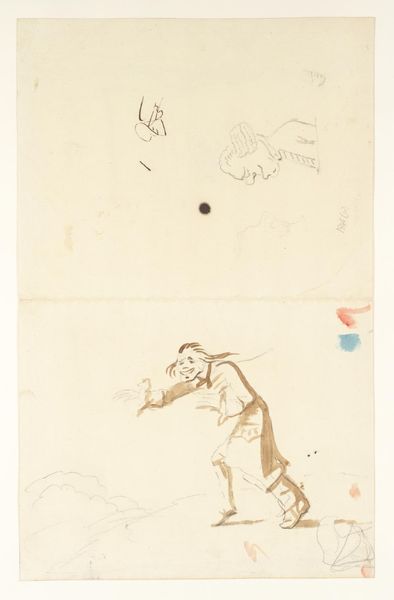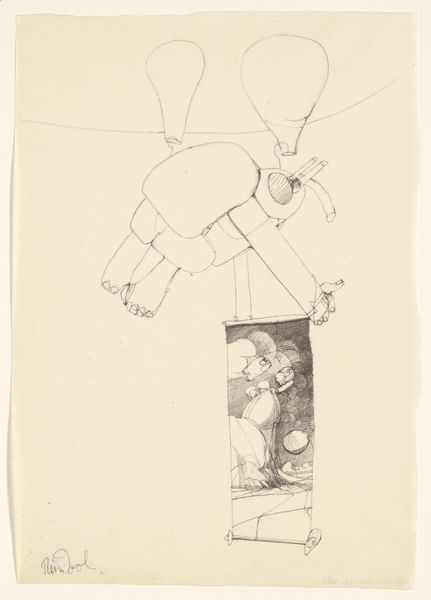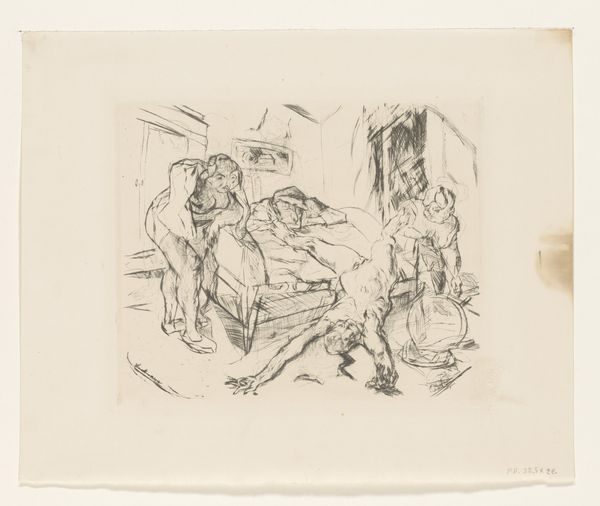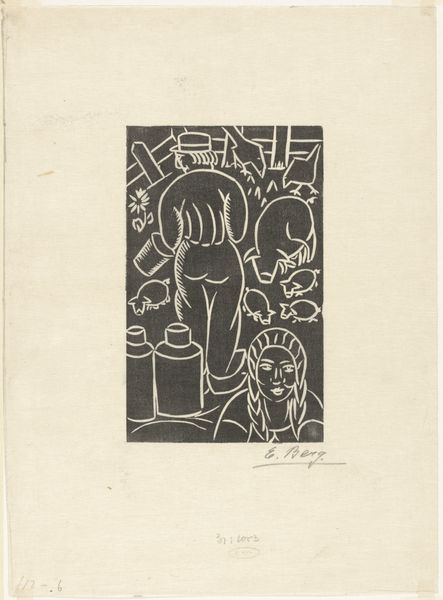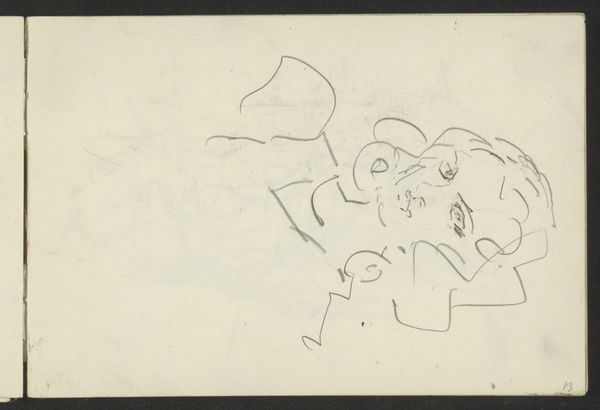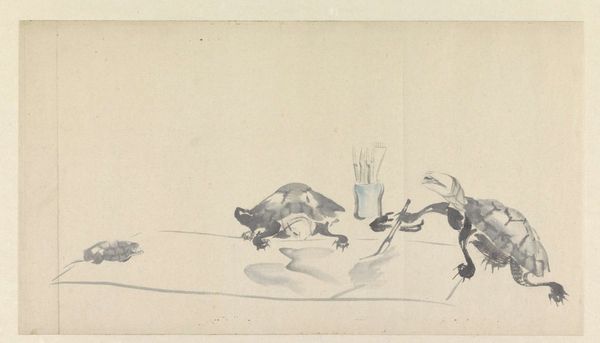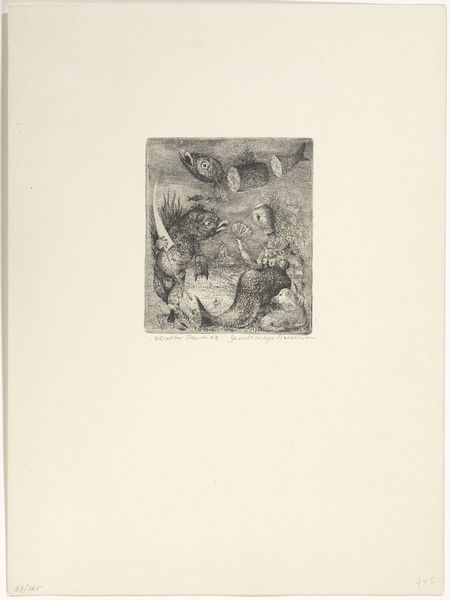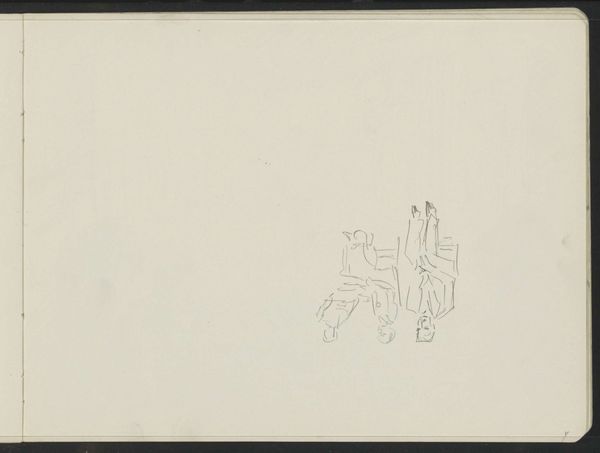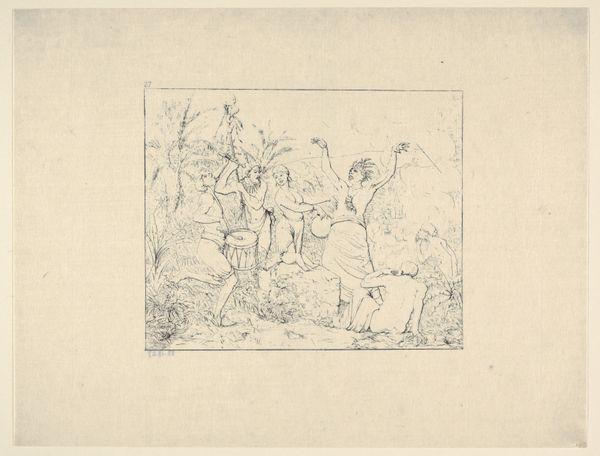
drawing, graphic-art, ink, pen
#
drawing
#
graphic-art
#
narrative-art
#
figuration
#
ink
#
ink drawing experimentation
#
pen-ink sketch
#
sketchbook drawing
#
pen
#
sketchbook art
#
modernism
Dimensions: height 111 mm, width 133 mm
Copyright: Rijks Museum: Open Domain
Curator: Today we're looking at Julie de Graag's "Twee voorstellingen," made sometime between 1878 and 1924. It’s a drawing, employing both pen and ink. What are your initial thoughts? Editor: Well, formally, it's quite stark. The composition, split into these two distinct vignettes, creates an intriguing tension. The simplicity of the ink on paper almost has a graphic quality. Curator: De Graag's use of pen and ink emphasizes the labor involved in artistic creation. The repetitive mark-making, visible under close inspection, reminds us that art is the product of skilled labor, not simply divine inspiration. There’s a social dimension to that materiality. Editor: I see your point about the labor, but I'm more struck by how the contrasting textures achieved with simple ink strokes create depth and contrast. Look at how the artist uses hatching and cross-hatching to differentiate the figure holding the flag from the outdoor garden scene. It’s about formal relationships. Curator: The figure holding the flag... it is a figure who proclaims power and dominion. While the other frame seems to express peace. I think the tension reflects broader social upheavals during the Modernist movement when traditional hierarchies were being questioned and remade. What does that flag signify, and to what community does this allegiance adhere? Editor: Perhaps, but on the other hand, consider the flag itself, and the crisp lines describing it versus the organic feeling achieved in the nature scene. What we read there are symbolic systems. Curator: So for you, the significance rests in the abstract relationships between marks and textures rather than what those forms represent in a given social context. Editor: Precisely. Curator: Thank you. Considering its stark simplicity and complexity, “Twee voorstellingen” allows a rich debate on labor, society, and making. Editor: Indeed, the beauty and skill are available from every penstroke of De Graag.
Comments
No comments
Be the first to comment and join the conversation on the ultimate creative platform.
